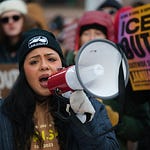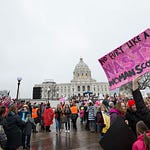A quick note about our interviews: we aim to feature a range of voices on Minneapolis issues. Appearing on the show does not equal an endorsement, nor does it mean we agree with every position a candidate or leader holds. Our goal is to encourage residents to engage with city government—often the place where your participation can most directly shape daily life.
In that spirit, we encourage you to learn about the candidates and, if moved, volunteer for those who best reflect your priorities for Minneapolis.
If you value this work, please forward the newsletter to a friend and consider becoming a paid subscriber.
We’re also considering October 30 for our next paid-subscriber happy hour (location TBD). Stay tuned!
Interview Summary:
In this interview, Tom Olsen, an incumbent candidate running for re-election as an At-Large Commissioner on the Minneapolis Park Board, discusses his background, role, and priorities for the city’s park system. Olsen currently works in communications for the Minnesota House DFL and lives in the Fulton neighborhood. He describes the Park Board as a nine-member elected body that oversees a $150 million annual budget—responsible for maintaining parks, selecting the superintendent, and shaping long-term planning and policy for one of the largest municipal park systems in the country.
Olsen explains that roughly 80% of the Park Board’s funding comes from property taxes, leaving it vulnerable to market shifts, particularly in commercial real estate. To diversify revenue, the Board is exploring expanded metered parking, special events such as traveling beer gardens, and investment portfolios in partnership with the Minneapolis Parks Foundation. He emphasizes the importance of maintaining independence and transparency while securing state and philanthropic support for large projects like North Commons and Water Works.
A key theme throughout the conversation is Olsen’s focus on climate action and youth engagement. He details ongoing efforts to plant tree species resilient to Minnesota’s changing climate, reduce stormwater runoff, and expand renewable energy and green space. On the youth front, Olsen highlights programs such as Teen Teamworks and Rec Plus, which provide affordable childcare and employment pathways for teens. He stresses that youth investment is not just social programming but a strategy for long-term public safety and civic stability.
The interview also explores Olsen’s policy stances and lessons from his first term. He speaks candidly about challenges, from failed efforts to pedestrianize parkways to controversies over Hiawatha Golf Course and Minnehaha Dog Park. Olsen notes both successes, such as supporting equitable park investments and youth funding, and setbacks, including board votes that prioritized parking over environmental goals. His perspective reflects a balance between stewardship and reform—valuing the park system’s legacy while pushing for adaptation and accountability.
In closing, Olsen underscores the Park Board’s vital role in defining Minneapolis’s identity. He urges residents to stay informed, vote thoughtfully in the complex ranked-choice system, and appreciate that the city’s park system—more than any building or business—is central to its quality of life. His campaign message combines park stewardship with a deep belief in parks as engines of community, equity, and environmental resilience.










